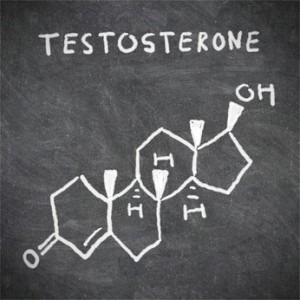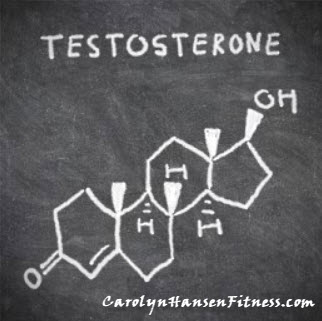 Just like females, as men age, they have to deal with their own set of physical changes that are unique to them alone. Many of these are a direct result of a decrease in the male hormone testosterone.
Just like females, as men age, they have to deal with their own set of physical changes that are unique to them alone. Many of these are a direct result of a decrease in the male hormone testosterone.
Testosterone is the essence of maleness both physically and sexually. Its role is to keep men looking good, feeling good and performing at peak performance. This important male hormone contributes to maintaining bone mass, muscle mass and strength, increasingly healthy libido and sexual functions, normal hair growth and healthy sperm production.
Between the ages of 25 and 50 testosterone levels naturally decrease in the 50% range while estrogen levels (the female equivalent to male testosterone) increases by 50%. In fact, one of the primary causes of hormone imbalance in men as they age is that testosterone is being converted into estrogen and the results are too much estradiol. Too much estrogen in men is tricks the brain into believing that its supply of testosterone is sufficient and so it slows down the production of this vital male hormone.
This causes changes that are easily seen in the mirror like reduced hair on the body and head (balding), an increase in body fat and a noticeable decrease in muscle mass.
The effects that testosterone has on men can be classified into two categories: anabolic and androgenic.
Anabolic effects stimulate the growth of bone, muscle and red blood cells while the androgenic effects include the growth of facial and body hair as well as male pattern baldness, changing and deepening of the voice, and sex organ development.
Age-related declining testosterone levels are natural but they can also be accelerated by certain factors and it’s interesting to note that these factors become both the cause and effect of testosterone deficiency so it becomes a mad “merry-go-round” of repeating effects…
These contributing factors are:
Excess fat/weight (abdominal obesity)
Decreased bone density
Low mental states like depression
Low libido, low sexual function and reduced interest in sex
Stress and its related anxiety
Insulin resistance (hence the rise in diabetes)
Low unhealthy HDL cholesterol
While much of the attention is placed on the physical effects experienced with low testosterone levels, easily overlooked but equally important are the emotional and mental aspects of testosterone deficiency that can be equally destructive and devastating and often lead to depression.
An emotional shifting of moods downward, touchiness and irritability, weak concentration and memory failure, tiredness and passive attitudes, lack of interest in life and surroundings, unrest, tiredness and timid behavior are all potential mental issues created in response to low and declining testosterone levels.
To top it all off, testosterone is the key to healthy male sexuality. Dr. Eugene Shippen explains in his book “The Testosterone Syndrome” that the “pelvic/genital region is packed with testosterone receptors. In fact, all the different structural components of the genital area-nerves, arteries, veins and muscles are guided in their formation by testosterone and maintained in good working order throughout life by that very same hormone.”
Since sexual issues often times lead back to mental and emotional issues such as low self-esteem and depression, and this damaging cycle continues.
The great news in regards to testosterone loss and the effects it causes is that it is never too late to make changes even if you have already entered middle age or older still. The sooner you become aware of what is happening, the sooner you are empowered to make changes to your health and fitness.

